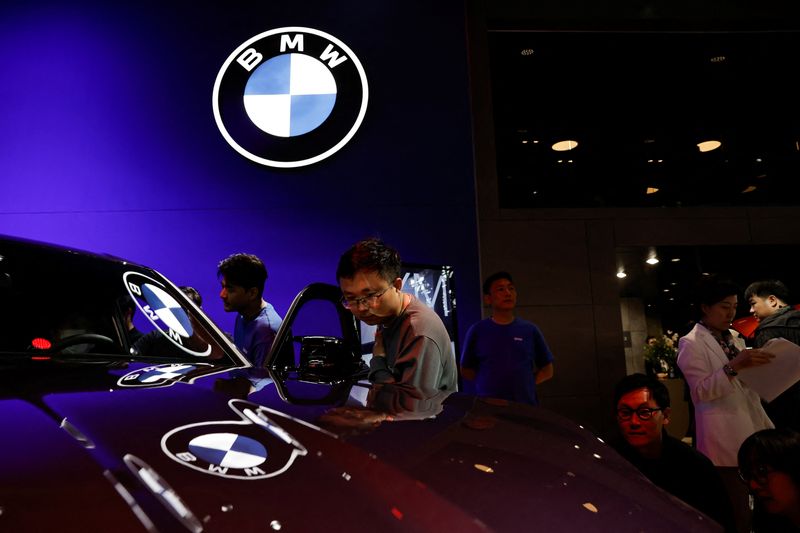How are energy investors positioned?
Investing.com -- BMW (ETR:BMWG) shares slipped on Thursday after the company reported second-quarter revenue below expectations, even as automotive free cash flow came in well ahead of forecasts.
Automotive free cash flow totaled €1.93 billion for the quarter, exceeding consensus estimates of €943 million.
First-half free cash flow reached €2.35 billion, supporting the company’s full-year guidance of more than €5 billion.
Group revenue for the quarter was €33.9 billion, short of the €36.0 billion consensus.
Group earnings before interest and taxes stood at €2.66 billion, representing a margin of 7.8%, above the 7.3% forecast. Earnings before tax margin was 7.7%, aided by positive leasing eliminations.
In the automotive segment, revenue fell 8.2% year over year to €29.4 billion. Foreign exchange-adjusted revenue declined 5.3%. Vehicle deliveries rose 0.4%.
EBIT for the segment was €1.60 billion, with an operating margin of 5.4%, matching consensus expectations.
After adjustments for purchase price allocation and net capitalized R&D, the clean margin was 5.7%, down from 8.8% a year earlier.
The margin decline reflected a 1.5 percentage point tariff impact in the first half, as well as foreign exchange effects and continued pricing pressure in China.
Battery electric vehicles remained margin dilutive. On the positive side, research and development costs declined, and marketing and IT expenses were lower compared with the prior year. Higher R&D capitalization also contributed to results.
BMW reaffirmed its full-year outlook. The company expects slight year-over-year growth in vehicle deliveries and a group earnings before tax figure roughly flat compared with 2024.
The automotive EBIT margin is projected to remain in a 5% to 7% range. The company also reiterated a 125-basis-point full-year tariff headwind and a modest increase in electric vehicle penetration, which stood at 17.4% in 2024.
BMW’s financial services segment reported earnings before tax of €542 million, down 28% from the prior year and below the €640 million consensus.
The decline was attributed to tax-related provisions, reduced lease remarketing revenue, and lower lease returns. The credit loss ratio rose slightly to 0.27%.
Working capital outflows in the automotive segment amounted to €0.3 billion. Inventory contributed €0.8 billion in inflows, while payables resulted in a €0.7 billion outflow.
Capital expenditure for the quarter totaled €2.3 billion, €0.3 billion lower year over year. Net automotive liquidity at the end of the quarter stood at €44.8 billion, down €0.7 billion from the previous quarter.
